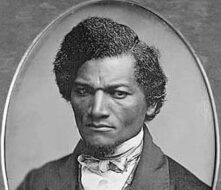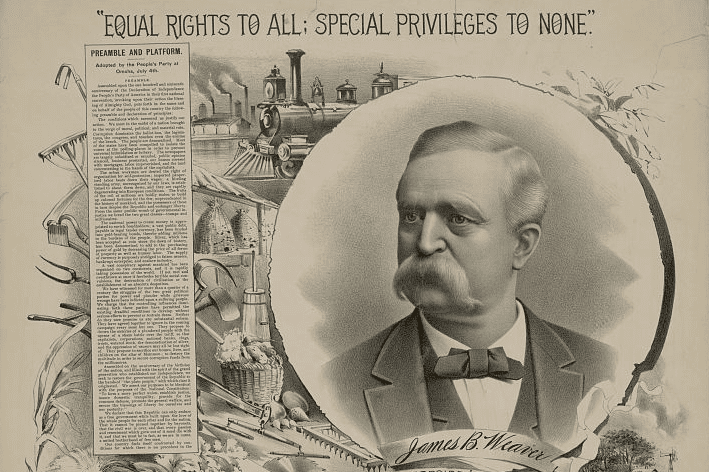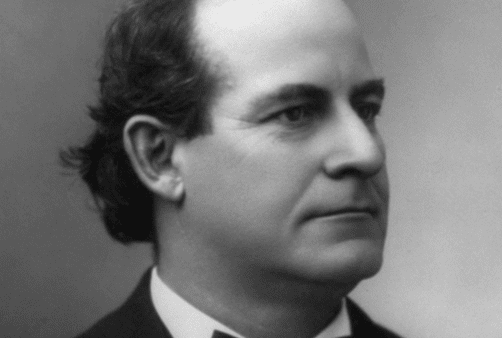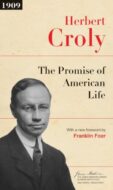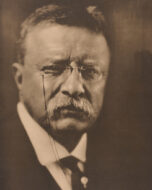
In addressing myself to a consideration of the subject: “The colored man as an Independent Force in our Politics,” I come at once to one of the vital principles underlying American citizenship and the citizenship of the colored man in a peculiar manner. Upon this question hang all the conditions of man as a free moral agent, as an intelligent reasoning being; as a man thoughtful for the best interests of his country, of his individual interests, and of the interests of those who must take up the work of republican government when the present generation has passed away. When I say that this question is of a most complex and perplexing nature, I only assert what is known of all men.
I would not forget that the arguments for and against independent action on our part are based upon two parties of sets of principles. Principles are inherent in government by the people, and parties are engines created by the people through which to voice the principles they espouse. Parties have divided on one line in this country from the beginning of our national existence to the present time. All other issues merge into two distinct ones — the question of a strong Federal Government, as enunciated by Alexander Hamilton, and maintained by the present Republican party, and the question of the rights and powers of the States, as enunciated by Thomas Jefferson, and as maintained by the present Democratic party, — call the “party of the people,” but in fact the party of oligarchy, bloodshed, violence and oppression. The Republican party won its first great victory on the inherent weakness of the Democratic party on the question of Human Rights and the right of the Federal Government to protect itself from the assumption, the aggression, the attempted usurpation, of the States and it has maintained its supremacy for so long a time as to lead to the supposition that it will rule until such time as it shall fall to pieces of itself because of internal decay and exterior cancers. There does not appear to exist sufficient vitality outside of the Republican party to keep its members loyal to the people or honest to the government. The loyal legislation which would be occasioned by dread of loss of power, and the administration of the government in the most economical form, are wanting, because of the absence of an honest, healthy opposing party.
But it is not my purpose to dwell upon the mechanism of parties but rather to show why colored Americans should be independent voters, independent citizens, independent men. To this end I am led to lay it down: (1.) That an independent voter must be intelligent, must comprehend the science of government, and be versed in the history of governments and of men; (2.) That an independent voter must be not only a citizen versed in government, but on loyal to his country, and generous and forbearing with his fellow-citizens, not looking always to the word and the act, but looking sometimes to the undercurrent which actuates these — to the presence of immediate interest, which is always strong in human nature, to the love of race, and to the love of section, which comes next to the love of country.
Our country is great not only in mineral and cereal resources, in numbers, and in accumulated wealth, but great in extent of territory, and in multiplicity of interests, out-growing from peculiarities of locality, race, and education of the people. Thus the people of the North and East and West are given to farming, manufacturing, and speculation, making politics a subordinate, not a leading interest; they are consequently wealthy, thrifty and contented: while the people of the South, still in the shadow of defeat in the bloodiest and most tremendous conflict since the Napoleonic wars, are divided sharply into two classes, and given almost exclusively to the pursuits of agriculture and hatred of one another. The existence of this state of things is most disastrous in its nature, and deplorable in its results. It is a barrier against the progress of that section and alien to the spirit and subversive of the principles of our free institutions.
It is in the South that the largest number of our people live; it is there that they encounter the greatest hardships; it is there the problem of their future usefulness as American citizens must have full and satisfactory, or disastrous and disheartening demonstration. Consequently, the colored statesman and the colored editor must turn their attention to the South and make that a field the center of speculation, education and practical application. We all understand the conditions of society in the section and the causes which have produced them, and, while not forgetting the causes, it is a common purpose to alter the existing conditions, so that they may conform to the logic of the great Rebellion and the spirit and letter of the Federal Constitution. It is not surprising, therefore, that, as a humble worker in the interest of my race and the common good, I have decided views as to the course best to be pursued by our people in that section, and the fruits likely to spring from a consistent advocacy of such views.
I may stand alone in the opinion that the best interests of the race and the best interests of the country will be conserved by building up a bond of union between the white people and the Negroes of the South — advocating the doctrine that the interests of the white and the interests of the colored people are one and the same; that the legislation which affects the one will affect the other; that the good which comes to the one should come to the other and, and that, as one people, the evils which blight the hopes of the one blight the hopes of the other; I say, I may stand alone among colored men in the belief that harmony of sentiment between the blacks and whites of the country, in so far forth as it tends to honest division and healthy opposition, is natural and necessary, but I speak that which is a conviction as strong as the Stalwart idea of diversity between Black and White, which has so crystallized the opinion of the race.
It is not safe in a republican form of government that clannishness should exist, either by compulsory or voluntary reason; it is not good for the government, it is not good for the individual. A government like ours some and natural, but upon the fundamental idea incorporated in the Declaration of Independence and re-affirmed in the Federal Constitution the utmost unanimity should prevail. That all men are born equal, so far as the benefits of government extend; that each and every man is justly entitled to the enjoyment of life, liberty, and the pursuit of happiness, so long as these benign benefits be not forfeited by infraction upon the rights of others; that freedom of thought and unmolested expression of honest conviction and the right to make these effective through the sacred medium of a fair vote and an honest count, are God-given and not to be curtailed—these are the foundations of republican government; these are the foundations of our institutions; these are the birthright of every American citizen — these are the guarantees which make men free and independent and great.
The colored man must rise to a full conception of his citizenship before he can make his citizenship effective. It is a fatality to create or foster clannishness in a government like ours. Assimilation of sentiment must be the property of the German, the Irish, the English, the Anglo-African, and all other racial elements that contribute to the formation of the American type of citizen. The moment you create a case standard, the moment you recognize the existence of such, that moment republican government stands beneath the sword of Damocles, the vitality of its being becomes vitiated and endangered. If this be true, the American people have grave cause for apprehension. The Anglo-African element of our population is classed off by popular sentiment, and kept so. It is for the thoughtful, the honest, the calm but resolute men of the race to mould the sentiment of the masses, lift them up into the broad sunlight of freedom. Ignorance, superstition, prejudice, and intolerance are elements in our nature born of the malign institution of servitude. No fiat of government can eradicate these. As they were the slow growth, the gradual development of long years of inhuman conditions. Let us recognize these facts as facts, and labor honestly to supplant them with more wholesome, more cheering realities. The Independent colored man, like the Independent white man, is an American citizen who does his own thinking. When someone else thinks for him he ceases to be an intelligent citizen and becomes a dangerous dupe — dangerous to himself, dangerous to the State.
It is not to be expected now that the colored voters will continue to maintain that unanimity of idea and action characteristic of them when the legislative halls of States resounded with the clamor of law-makers of their creation, and when their breath flooded or depleted State treasuries. The conditions are different now. They find themselves citizens without a voice in the shapement of legislation; tax-payers without representation; men without leadership masterful enough to force respect from inferior numbers in some States, or to hold the balance of power in others. They find themselves at the mercy of a relentless public opinion which tolerates but does not respect their existence as a voting force; but which, on the contrary, while recognizing their right to the free exercise of the suffrage, forbids such exercise at the point of the shotgun of the assassin, who it not only nerves but shields in the perpetration of his lawless and infamous crimes. And why is this? Why is it that the one hundred and twenty thousand black voters of South Carolina allow the eight thousand white voters of that State to grind the life out of them by laws more odious, more infamous, more tyrannical and subversive of manhood than any which depopulate the governments of the old world? Is it because the white man is the created viceregent of government? The Scriptures affirm that all are sprung affirm from one parental stem. Is it because he is the constitutionally invested oligarch of government? The Magna Charta of our liberties affirms that “all men are created equal.” Is it because the law of the land reserves unto him the dominance of power? The preamble of the Federal Constitution declares that “We” and not “I,” constituted “the people of the United States.” If the law of God and the law of man agree in the equality of right of man, explain to me the cause which keeps a superior force in subjection to a minority. Look to the misgovernment of the Reconstruction period for the answer — misgovernment by white men and black men who were lifted into a “little brief authority” by a mighty but unwieldy voting force. That black man who connived at and shares in the corruption in the South which resulted in the subversion of the majority rule, is a traitor to his race and his country, wherever he may now be eking out a precarious and inglorious existence, and I have nothing to heap upon Arnold [but that?] he should seek a garret in the desert of population, living unnoticed, and without respect, where he might die without arousing the contempt of his people.
The love of Liberty carries with it the courage to preserve it from encroachments from without and from contempt from within. A people in whom the love of Liberty is in-born cannot be enslaved, though they may be exterminated by superior force and intelligence, as in the case of the poor Indian of our own land — a people who, two hundred years ago, spread their untamed hordes from the icebergs of Main to the balmy sunland of Florida. But today where are they? Their love of freedom and valorous defense of priority of ownership of our domain have caused them to be swept from the face of the earth. Had they possessed intelligence with their more than Spartan courage, the wave of extermination could never have rolled over them forever. As a man I admire the unconquerable heroism and fortitude of the Indian. So brave a race of people were worthy a nobler and a happier destiny. As an American citizen, I feel it born in my nature to share the fullest measure all that is American. I sympathize in all the hopes, aspirations and fruitations of my country. There is no pulsation in the animated frame of my native land which does not thrill my nature. There is no height of glory we may reach as a government in which I should not feel my self individually lifted; and there is no depth of degradation to which we may fall to which I should not feel myself individually dragged. In a word, I am an American citizen. I have a heritage in each and every provision incorporated in the Constitution of my country, and should this heritage be attempted to be filched from me by any man or body of men, I should deem the provocation sufficiently grievous to stake even life in defense of it. I would plant every colored man in this country on a platform of this nature — to think for himself, to speak for himself, to act for himself. This is the ideal citizen of an ideal government such as ours is modeled to become. This is my conception of the colored man as an independent force in our politics. To aid in lifting our people to this standard, is one of the missions which I have mapped out for my life-work. I may be sowing the seed that will ripen into disastrous results, but I don’t think so. My conception of republican government does not lead me to a conclusion so inconsistent with my hopes, my love of my country and of my race.
I look upon my race in the South and I see that they are helplessly at the mercy of a popular prejudice outgrowing from a previous condition of servitude; I find them clothed in the garments of citizenship by the Federal Government and opposed in the enjoyment of it by their equals, not their superiors, in the benefits of government; I find that the government which conferred the right of citizenship is powerless, or indisposed, to force respect for its own enactments; I find that these people, left to the mercy of their enemies, alone and defenseless, and without judicious leadership, are urged to preserve themselves loyal to the men and to the party which have shown themselves unable to extend to them substantial protection; I find that these people, alone in their struggles of doubt and of prejudice, are surrounded by a public opinion powerful to create and powerful to destroy; I find them poor in culture and poor in worldly substance, and dependent for the bread they eat upon those they antagonize politically. As a consequence, though having magnificent majorities, they have no voice in shaping the legislation which is too often made an engine to oppress them; though performing the greatest amount of labor, they suffer from overwork and insufficient remuneration; though having the greater number of children, the facilities of education are not as ample or as good as those provide for the whites out of the common fund, no have they means to supply from private avenues the benefits of education denied them by the State. Now, what is the solution of this manifold and grievous state of things? Will it come by standing solidly opposed to the sentiment, the culture, the statesmanship, and the possession of the soil and wealth of the South. Let the history of the past be spread before the eyes of a candid and thoughtful people; let the bulky roll of misgovernment, incompetence, and blind folly be enrolled on the one hand, and then turn to the terrors of the midnight assassin and the lawless deeds which desecrate the sunlight of noontide, walking abroad as a phantom armed with the desperation of the damned!
I maintain the idea that the preservation of our liberties, the consummation of our citizenship, must be conserved and matured, not by standing alone and apart, sullen as the melancholy Dane, but by imbibing all that is American, entering into the life and spirit of our institutions, spreading abroad in sentiment, feeling the full force of the fact that while we are classed as Africans, just as the Germans are classes as Germans, we are in all things American citizens, American freemen. Since we have tried the idea of political unanimity let us now try other ideas, ideas more in consonance with the spirit of our institution. There is no strength in a union that enfeebles. Assimilation, a melting into the corporate body, having no distinction from others, equally the recipients of government — this it is to be the independent man, be his skin tanned by the torrid heat of Africa, or bleached by the eternal snows of the Caucasus. To preach the independence of the colored man is to preach his Americanization. The shackles of slavery have been torn from his limbs by the stern arbitrament of arms; the shackles of political enslavement, of ignorance, and of popular prejudice must be broken on the wheels of ceaseless study and the facility with which he becomes absorbed into the body of the people. To aid himself is his first duty if he believes that he is here to stay, and not a probationer for the land of his forefathers — a land upon which he has no other claim than one of sentiment.
What vital principle affecting our citizenship is championed by the National Republican party of today? Is it fair vote and an honest count? Measure our strength in the South and gaze upon the solitary expression of our citizenship in the alls of the National Legislature. The fair vote which we cast for Rutherford B. Hayes seemed to have incurred the enmity of that chief Executive, and he and his advisers turned the colored voters of the South over to the bloodthirsty minority of that section.
The Republican party has degenerated into an ignoble scramble for place and power. It has forgotten the principles for which Summer contended, and for which Lincoln died. It betrayed the cause for which Douglass, Garrison and others labored, in the blind policy it pursued in the blind policy it pursued in reconstructing the rebellious States. It made slaves freemen and freemen slaves in the same breath by conferring the franchise and withholding the guarantees to insure its exercise; it betrayed its trust in permitting thousands of innocent men to be slaughtered without declaring the South in rebellion, and in pardoning murderers, whom tardy justice had consigned to a felon’s dungeon. It is even now powerless to insure an honest expression of the vote of the colored citizen. For these things, I do not deem it binding upon colored men further to support the Republican party when other more advantageous affiliations can be formed. And what of the Bourbon Democratic party? There has not been, there is not now, nor will there ever be, any good thing in it for the colored man. Bourbon Democracy is a curse to our land. Any party is a curse which arrays itself in opposition to human freedom, to the universal brotherhood of man. No colored man can ever claim truthfully to be a Bourbon Democrat. It is a fundamental impossibility. But he can be an independent, a progressive Democrat.
The hour has arrived when thoughtful colored men should cease to put their faith upon broken straws; when they should cease to be the willing tools of a treacherous and corrupt party; when they should cease to support men and measures which do not benefit them or the race; when they should cease to be duped by one faction and shot by the other. The time has fully arrived when they should have their position in parties more fully defined, and when, by the ballot which they hold, they should force more respect for the rights of life and property.
To do this, they must adjust themselves to the altered condition which surrounds them. They must make for themselves a place to stand. In the politics of the country the colored vote must be made as uncertain a quantity as the German and Irish vote. The color of their skin must cease to be an index to their political creed. They must think less of “the party” and more of themselves; give less heed to a name and more heed to principles.
The black men and white men of the South have a common destiny. Circumstances have brought them together and so interwoven their interests that nothing but a miracle can dissolve the link that binds them. It is, therefore, to their mutual disadvantage that anything but sympathy and good will should prevail. A reign of terror means a stagnation of all the energies of the people and a corruption of the fountains of law and justice.
The colored men of the South must cultivate more cordial relations with the white men of the South. They must, by a wise policy, hasten the day when politics shall cease to be the shibboleth that creates perpetual warfare. The citizen of a State is far more sovereign than the citizen of the United States. The State is real, tangible reality; a think of life and power; while the United States is, purely, an abstraction — a thing that no man has successfully defined, although many, wise in their way and in their own conceit, have philosophized upon it to their own satisfaction. The metaphysical polemics of men learned in the science of republican government, covering volume upon volume of “debates,” the legislation of ignoramuses, styled statesmen and the “strict” and “liberal” construction placed upon their work by the judicial magi, together with a long and disastrous rebellion, to the cruel arbitrament of which the question had been, as finally hoped, in the last resort, submitted, have failed, all and each, to define that visionary thing that so-called Federal government, and its just rights and powers. As Alexander Hamilton and Thomas Jefferson left it, so it is today, a bone of contention, a red flag in the hands of the political matadors of one party to infuriate those of the other parties.
No: it is time that the colored voter learned to leave his powerless “protectors” and take care of himself. Let every one read, listen, think, reform his own ideas of affairs in his own locality; let him be less interested in the continual wars of national politics than in the interests of his own town and county and state; let him make friends of the mammon of unrighteousness of his own neighborhood, so far as to take an intelligent part among his neighbors, white and black, and vote for the men and for the party that will do the best fro him and his race, and best conserve the interest of his vicinity. Let there be no aim of “solidifying” the colored vote; the missing of black means the massing of white by contrast. Individual colored men — and many of them — have done wonders in self-evaluation; but there can be no general elevation of the colored men of the South until they use their voting power in independent local affairs with some discrimination more reasonable that an obstinate clinging to a party name. When the colored voters differ among themselves and are to be found on both sides of local political contests, they will begin to find themselves of some political importance; their votes will be sought, cast, and counted.
And this is the key to the whole situation; let them make themselves a part of the people. It will take time, patience, intelligence, courage; but it can be done: and until it is done their path will lie in darkness and perhaps in blood.
An Appeal to Caesar
December 31, 1884
Conversation-based seminars for collegial PD, one-day and multi-day seminars, graduate credit seminars (MA degree), online and in-person.


















